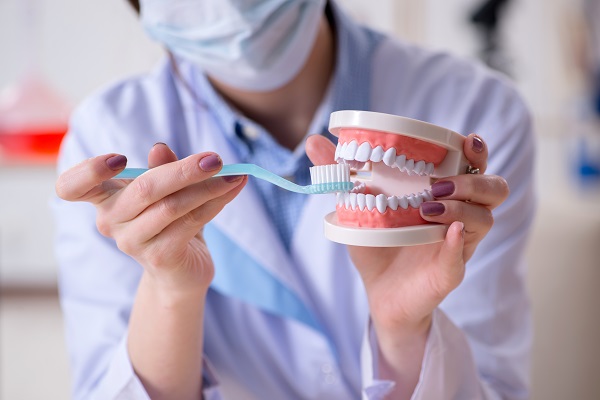How Many Types of Professional Dental Cleanings Are Available?

A dental cleaning from a professional helps individuals of all ages to maintain good oral health. There are different dental cleanings that may be required, based on the patient's health history as well as any risks that pose a threat to oral health. General dentists can perform evaluations to determine what type of cleanings are necessary and how often. When looking for more information on professional dental cleanings, it can be helpful to review the following.
Professional dental cleaning options
Outlined below are different dental cleaning options that a general dentistry practice typically offers.
Routine dental cleaning
The most common type of dental cleaning is a routine one. Both children and adults are advised to have a routine dental cleaning done every six months. However, in some scenarios, a general dentist may recommend them more frequently. Children may be required to get dental cleanings more often; their teeth are prone to cavities because they consume a lot of sugar and do not always practice good oral hygiene. Additionally, elderly individuals are at a higher risk of developing cavities and oral cancer, which makes cleanings necessary more frequently.
Deep dental cleaning
A deep dental cleaning is another professional option that general dentists offer to patients. This type of dental cleaning is used primarily for individuals who have a lot of buildup along their gum lines and beneath the pockets. Additionally, a general dentist may recommend this cleaning if the patient has skipped multiple dental appointments.
During a deep dental cleaning, the dentist and hygienist will clean out the gum pockets, which tend to hold plaque and tartar. The procedure can induce some discomfort, which is why a numbing agent is usually administered.
Scaling and root planing
One professional dental cleaning option is called scaling and root planing. This is a more intense type of dental cleaning that is used to treat gum disease. During the scaling procedure, the gums are pulled back and a dental instrument is used to scrape out plaque and tartar from below and above the gum line. Root planing may be done in a separate procedure as both can put a lot of stress on the mouth, resulting in discomfort and soreness. During a root planing session, the general dentist will use another dental instrument to smooth out the roots of the teeth, which may have become rough due to gum disease.
Scaling and root planing is known to cause discomfort, such as soreness or even pain. In addition to medications provided by the dental professional, it is often recommended that over-the-counter pain medications are taken afterward.
Find out more about professional dental cleanings
When needing any type of dental cleaning, it can be helpful to consult with a general dentist. An evaluation can be done in order to determine the recommended course of action, which may include one of the cleanings listed above. To find out more about professional dental cleanings, reach out today.
Request an appointment here: https://www.drroberttamaki.com or call Dr. Robert B Tamaki, DDS at (310) 402-0156 for an appointment in our Los Angeles office.
Check out what others are saying about our dental services on Yelp: Dental Cleaning in Los Angeles, CA.
Related Posts
Looking for dental cleaning information, specifically on oral health issues that regular dental cleanings can help prevent? If you are wondering just how important regular dental cleanings are when it comes to your overall oral health, know that they are extremely important.Even when you brush your teeth using a soft-bristled toothbrush at least twice a…
If you are worried about foods and drinks that stain your teeth, you are not alone. You can only do so much with flossing, brushing and attending 6-month dental visits. Many of the foods and beverages you enjoy pose a direct threat to the look and functionality of your teeth.Foods/beverages laden with sugar, acid and…
You should not book a dental check-up only when there is an oral issue that requires treatment. Many people believe that brushing their teeth and flossing should be enough to keep their teeth in good condition. However, simply brushing your teeth is not enough to keep your teeth free of debris that may cause issues…
You might need to have a dental checkup to see if you need a root canal if the pulp gets damaged. The pulp could get hurt because of trauma or an injury, and untreated oral health issues can also cause it. A dental checkup is a tool your dentist uses to determine if you need…
